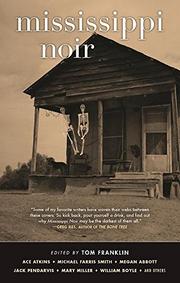To most of us, Halloween is a holiday characterized by the dispensing of candy to costumed young people who threaten, "Trick or treat." Other traditions include costume contests and parades. When I taught elementary school, teachers and parents worked together to hold Halloween carnivals for students. Before my retirement, these changed to Fall Festivals, and scary costumes (such as vampires, werewolves, skeletons, zombies, and this year--clowns) were forbidden because some people felt that Halloween was a celebration of witchcraft.
The traditions of Halloween include decorations such as black cats and pumpkins carved into jack-o-lanterns as well as activities like apple bobbing, pranks, bonfires, and divination games. In some parts of the world, Christian observances include church services and lighting candles on graves.
What accounts for the popularity of the non-religious aspects of Halloween? I believe it's because humans like to be scared--so long as what frightens us isn't real. We might think that fall and Halloween would amplify the appeal of spookiness, but horror is a genre that transcends season.
How does the title "At Last" relate to Halloween and the horror genre? Recently I've been doing a lot of writers' workshops in South Carolina libraries. One of my most popular is entitled "A Late Start." The topic is writing as a second career after my retirement including disadvantages of waiting so long to begin writing fiction as well as the obvious advantages of greater maturity and vaster experiences. The workshops include tips on speeding up the process of successful writing and publishing. The story of my first horror book proves that I don't always follow my own advice when it comes to fast writing and quick publication.
"At Last" would work as well if this blog referred to my first novel in 2007 as it does now to my tenth book released this month, but Leigh Lundin didn't invite me to return to SleuthSayers to summarize the workshop. I'm here to tell you about my newest book and why "At Last" is a perfect title for this column.
Sure, I wanted to push for a response, but we all know that it's not a good idea to put pressure on agents or editors. After months and months, I asked the agent to touch base with the interested editor at Berkley. I almost had another heart attack when I received an apology from my agent because he had forgotten to send her the manuscript revised to her requests.
Meanwhile, there had been major changes in the publishing world. To make a long story short (literally in this case), it was too late.
I began querying new agents and received some requests for the complete manuscript, but when Darren Foster at Odyssey South Publishing said, "Let us have it," I jumped at the chance. And so, ladies and gentlemen, at last, my first horror novel is now available. Here's the back copy:
Who knew Columbia, South Carolina, could be so scary?
Julie Bates discovers a corpse in front of the Assembly Street post office. Arson destroys her home the same day, but Julie's story is not a mystery. It's horror--southern style. Police officer Nate Adams thinks the killer who raped and murdered Julie's mother the year before is stalking Julie, but Julie's tormentor is not human. The well-known ghosts of South Carolina barely skim the surface of the evil that awaits Julie Bates. Move over, Amityville. Columbia, South Carolina, is right there with you on the scale of terror.
How does a writer transition from cozyesque to horror? The preface explains:
When a red-haired woman approached me at a book-signing, I expected her to ask me to autograph one of my own cozy mysteries. Instead, she asked me to write a book for her. I went into my usual spiel that she could do a better job of putting her story on paper than I, but we agreed to meet in the coffee shop after the signing. Writers are frequently approached to write or co-write someone else's story. Most of the time, we decline politely, but there was something about this mysterious stranger that made me hesitate to dismiss her so quickly,
The HORROR of JULIE BATES is that woman's story. I spent many, many hours recording Julie Bates' tale and many more days and nights scaring myself as I wrote her story from her point of view, changing only names. The occasional third-person chapters were added after I was fortunate enough to obtain Richard Arthur's journal.
I have already received several emails questioning, "Did you make up this story or did a red-haired woman really tell it to you?" I can honestly say the story came from a red-haired woman.
Long-time SleuthSayer readers know that I've jumped genre from cozies in the past when I wrote the thriller KUDZU RIVER. I have no idea where I'll land next, but in the meantime,
Until we meet again, take care of … you!












